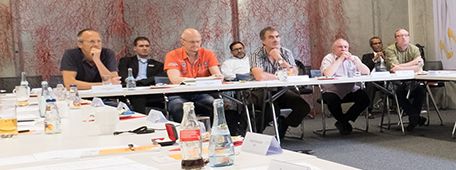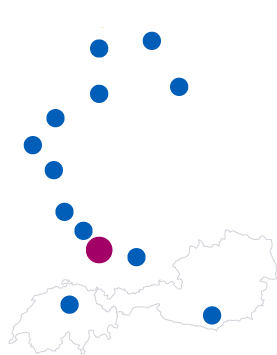City of Wolfenbüttel
Digitization of financial management
Challenge
When the city decided to replace their old, inflexible financial software with the integrated financial accounting of Infoma newsystem, managers at the finance department also scrutinized their internal processes, in order to adapt them to the demands of modern administration.
The central building block of our strategy is complete digitization of financial Administration – explains Axel Sievers, Head of the Finance and Controlling department in Wolfenbüttel.
“Our primary goal was to make our core business digital, without having to lessen our high standards in budgetary law.” In addition, the city wanted to achieve a high level of transparency and security through clear responsibilities, uniform processes and structured procedures.
To do so, the city uses solutions like the integrated invoice workflow and eInvoice manager ePayment, as well as an ordering workflow and the Plus reporting system and eFile.
Wolfenbüttel managers understood one thing right from the start if they wanted to make this complex effort a success: It would only succeed with the active support of their IT service provider, the Zweckverband Kommunale Datenverarbeitung Oldenburg (KDO), which handled project support for the go live, including training and workshops, and with effective internal project management. The city assembled a project team consisting of employees from the Finances and Controlling departments, under the overall leadership of department manager Sievers and his deputy Silke Vopel. Responsibility for individual sub-projects was assigned to different employees. Close collaboration between both sides ensured they could both assess overall developments at all times and jointly manage the development of the specific individual project. “This regular exchange is important, in particular in light of the project’s duration” says Silke Vopel. “Modernizing and digitizing procedures is a long-term process, since financial administration acts as an interdisciplinary task that cuts across all agencies and departments. Because of this, processes must always be reliably functional.”
Solution
Since the start of the project “Digitizing financial administration” on 1/1/2016, Wolfenbüttel has already realized most of the goals it set out for itself. Invoice processing is being handled in a fully digital process using the integrated invoice workflow, the eInvoice manager has met the requirements for eInvoices according to EU directive 2014/55/EU and the ERechV, and the budget planning workflow has also been implemented to simplify and accelerate the budget planning process and simplify deadline monitoring. Currently, an interactive budget plan / annual accounts and mid-year reporting system are being implemented with IKVS.
Other goals are still in preparation or in the first phase of go live. The ordering workflow, which the city intends to use to simplify and accelerate its contracting process, is currently involved in an internal pilot project with selected agencies to identify areas where training is needed. The eFiles “Taxes,” “Cash department,” “Contract management” and “Facility management” are already in comprehensive use, while the enforcement eFile is currently being tested.
Benefits
User feedback serves as an indicator of the success and acceptance of the newly introduced processes, which are required for use. The majority of users assessed all introduced processes positively, after an acclimatization period. The project team, therefore, can count itself successful in mastering the challenges associated with such a project, which remain significant: helping users accept the updates and see them as progress and a simplification.
Thorben Küsel, who advised the digitization projects, proudly states “that we are ahead of the times, compared to local governments of comparable size. We have already fulfilled statutory requirements on receiving electronic invoices two years before the deadline, and have an advantage over other local governments in terms of federal and state digitization strategies. Above all, however, we have been able to get our administrative employees used to using digital processes and “digital thinking.”
Due to the reorganization of the utilities for 2020, other plans include introducing a Municipal departments module with mobile recording of work hours and tasks. A billing solution for outgoing invoices and assessments, eFiles for systems and utilities, and a citizen portal are other goals the city plans to address soon.
Martin Sunder, Product Manager at Infoma newsystem at KDO, can only confirm that, with this will to implement the solutions, the city of Wolfenbüttel has proven a highly flexible and extremely innovative administration: “While carrying out the project, we saw again and again how managers did not look for obstacles in the new processes and solutions, but instead always saw the opportunities they offer to be well-established for the future first. This is one of the key reasons Wolfenbüttel received this year’s Innovation Prize from Axians.”
After around three years of intensive project work, Axel Sievers and his team are pleased to announce positive results: “Our overall strategy is designed to create a self-contained process that is wholly digital from start to end, without media disruptions. This has resulted in a significant simplification of work processes, better transparency, faster processing times and better convenience for citizens and employees.”
Key data
Product Financial accounting
State Lower Saxony
Number of inhabitants
53.000
Complete digitization of financial administration is a key component of the Wolfenbüttel strategy.
Overview of key points
Budget planning
eInvoice manager


























